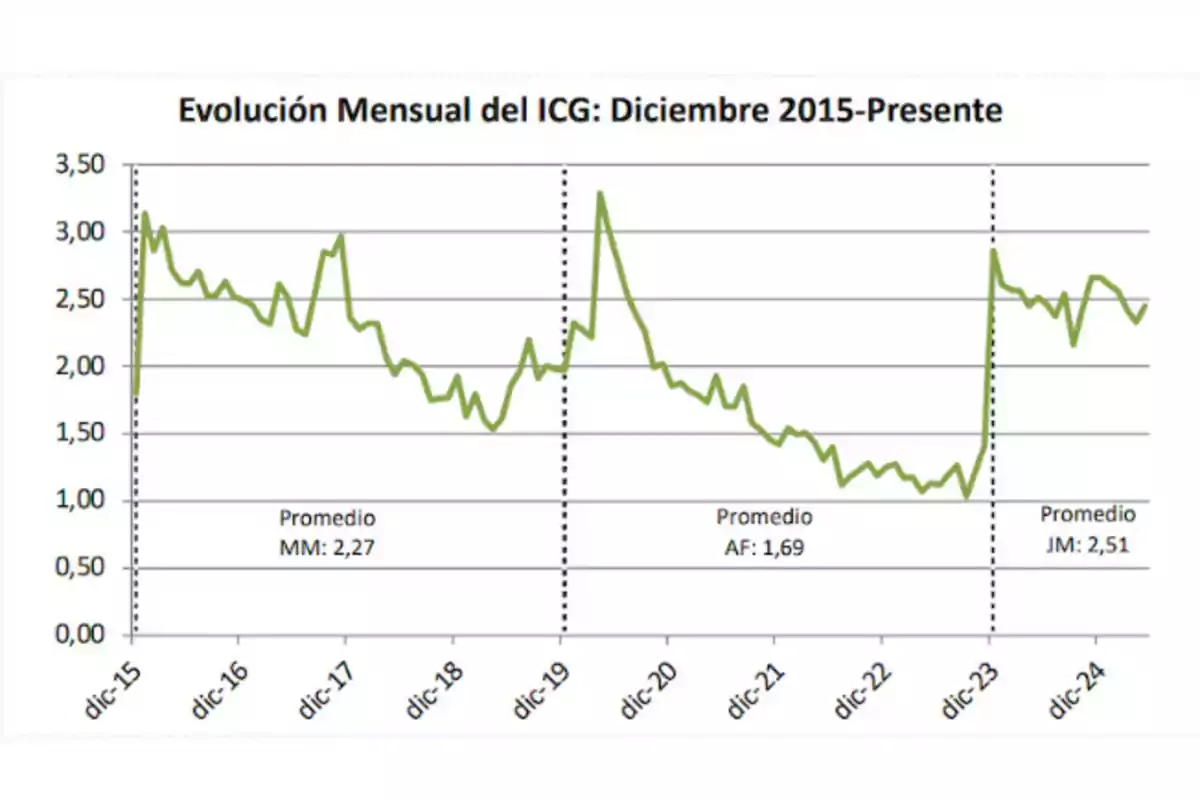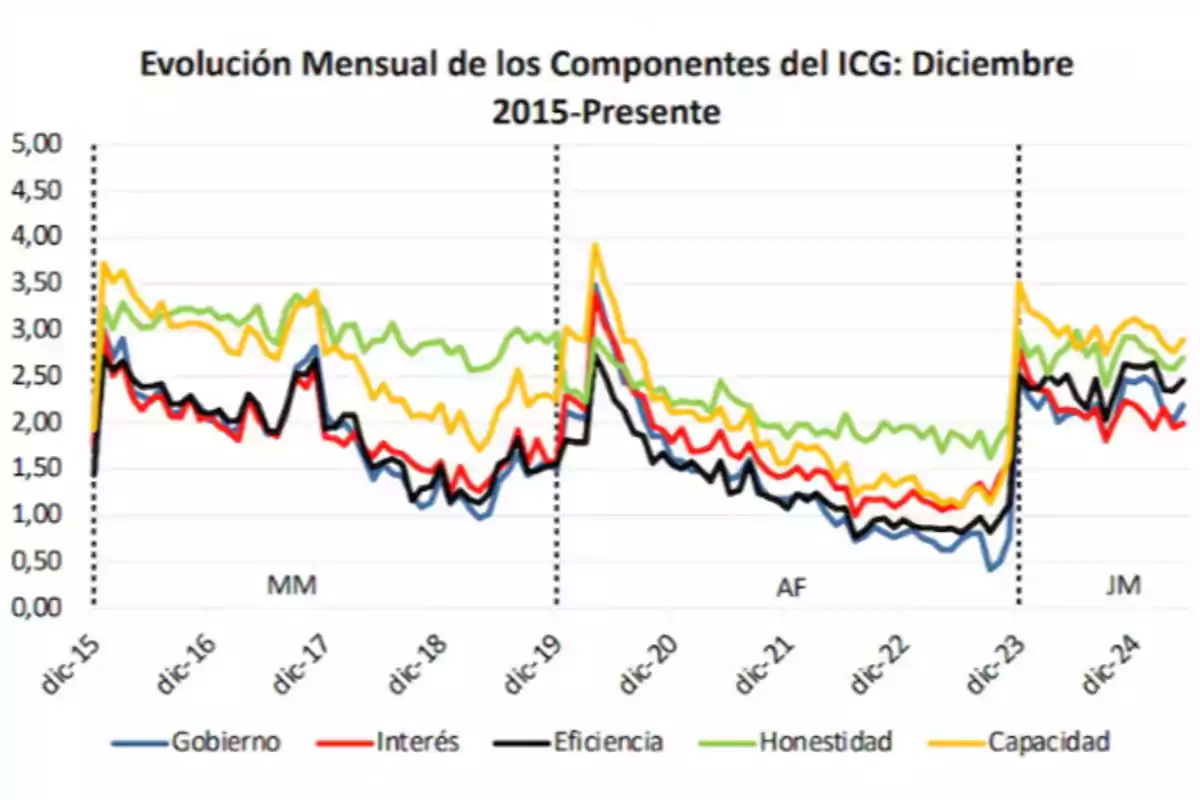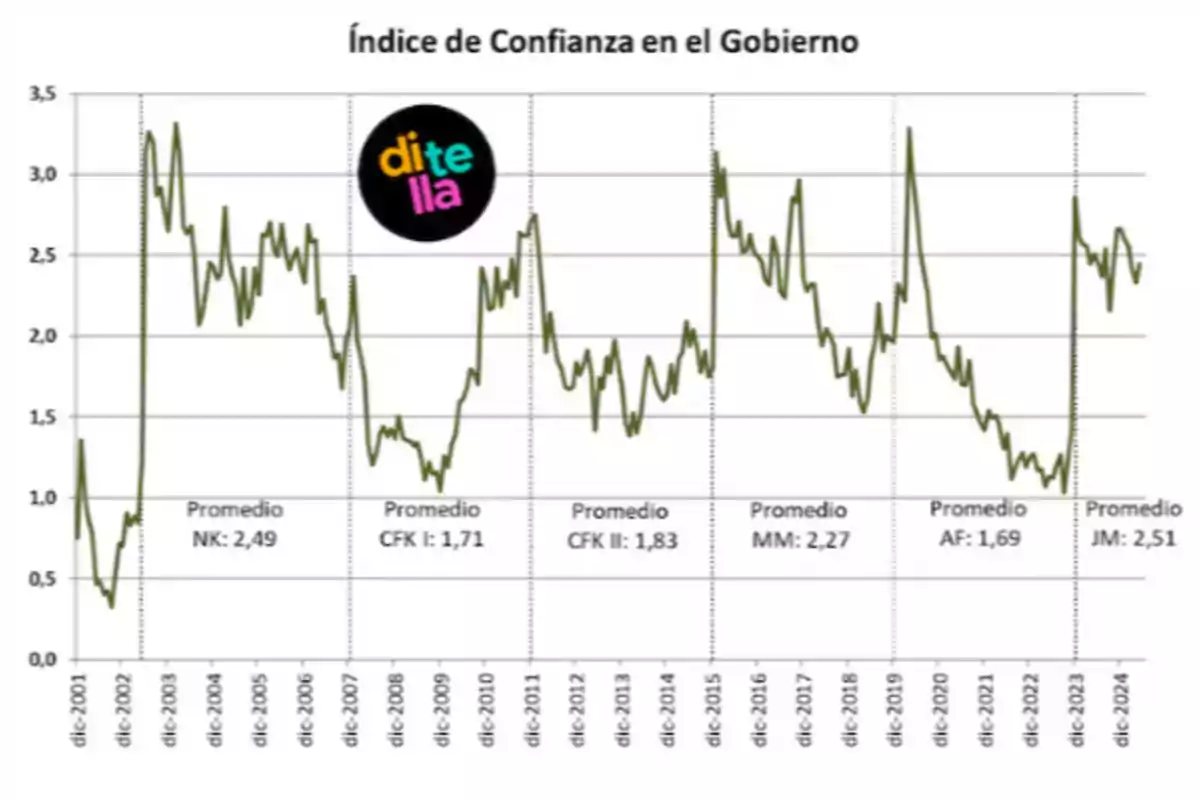
The Confidence Index in Javier Milei's government soared in May
According to the Universidad Torcuato Di Tella, the ICG grew by 5%, an increase compared to April
The Government Confidence Index(ICG), prepared monthly by the School of Government at Universidad Torcuato Di Tella, recorded a 5% increase in May compared to the previous month. With this improvement, the index reached 2.45 points on a scale from 0 to 5, interrupting a series of five consecutive months of decline.
This is not a minor fact: it represents a statistical respite for the libertarian administration after weeks of political wear, corporate resistance, and parliamentary disputes. The report specifies that this level of confidence is only slightly lower than that recorded in May 2017, and 26.7% higher than in May 2021, during Alberto Fernández's administration. The difference with the latter is particularly significant, given the economic and institutional debacle inherited.

The increase in May also allowed the recovery of confidence points that had been lost since December 2023, representing a favorable shift in social sentiment. In year-on-year terms, the index still shows a slight decline compared to May 2023, although the recent strong rebound stands out.
Since its creation in November 2001, the ICG has been built on five essential components:
Government's ability to solve the country's problems.
Honesty of officials.
Efficiency in public spending.
General evaluation of the administration.
Concern for the general interest.

The month of May showed concrete increases:
Ability to solve problems: 2.90 points (+4.9%)
Honesty of officials: 2.70 points (+4.7%)
Efficiency in public spending: 2.46 points (+4.5%)
General evaluation of the government: 2.20 points (+8.7%)
Concern for the general interest: 2.00 points (+2.6%)
On average, Javier Milei's administration keeps a confidence average of 2.51 points in its first 18 months in office. This number is well above the 2.24 points reached by Alberto Fernández.
The report also delves into how confidence is distributed according to demographic and geographic variables. The rebound was more pronounced among men, young people between 18 and 29 years old, people with tertiary or university education, and residents of the country's interior, in contrast to the lower levels observed in the Metropolitan Area of Buenos Aires (CABA and GBA). This pattern coincides with the sociopolitical profile of the Milei voter: critical of the status quo, reformist, and oriented toward individual merit.

At the end of 2023, President Milei's administration had achieved high levels of confidence thanks to containing inflation and the drastic shift in the management of public resources. However, the natural wear of structural reforms and the resistance of sectors linked to the old order led to a gradual decline from December to April of this year. The May data, then, marks a change in trend.
In November 2023, the Government had recorded a peak in confidence linked to the initial success of the economic program. Now, after months of stabilization and adjustment, the first effects are beginning to be perceived in public opinion.
The document itself accessed by Infobae highlights that, beyond the fluctuations, the ICG is a useful tool to "capture the perception that citizens have of the government administration", allowing the monitoring of the evolution of social support as reforms progress.
More posts: